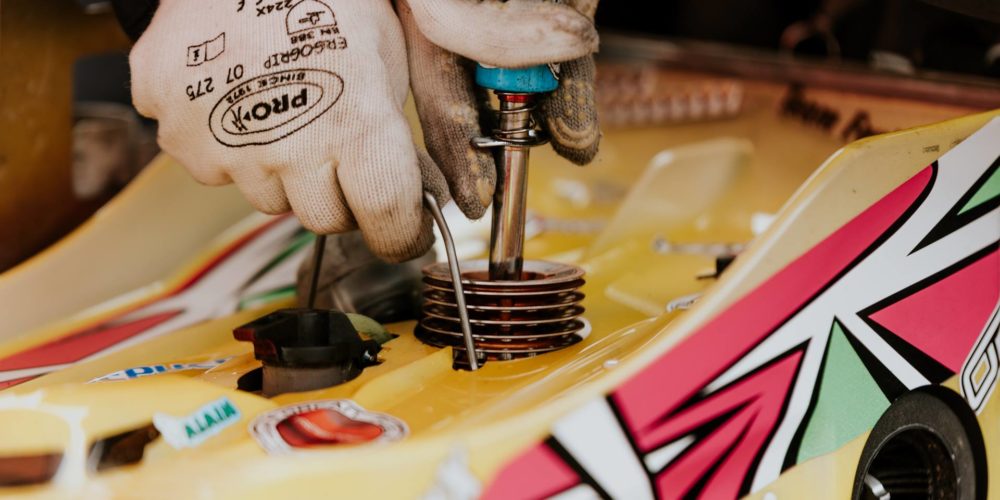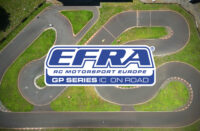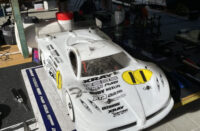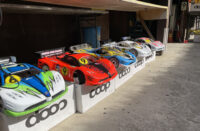We caught up with Javier Garcia, EFRA President, at the recent GP Series round at the beautiful track in Gubbio, Italy, to ask him some questions about the GP Series – how it started, where it’s going and who its biggest stars are!
| CTRL: Hello Javier! Thanks for sitting down with us, we know you’re a busy man: President of EFRA, racing referee and overseer of the EFRA GP Series. Now, most racers are fully aware of the EFRA European Championships and IFMAR World Championships, but can you explain to us what the EFRA GP Series is? Javier: Thank you, and it’s OK. I’m busy, yes, but there’s always time to talk for a few minutes! So the EFRA GPs have been around a long time, for many years. In the beginning it was mainly for EFRA staff to check venues for big events like the EFRA European Championship. Also, I have to say that EFRA GP SERIES are running in LARGE SCALE with great success thanks to the great job of our Section Chairman Ian Oddie. CTRL: Yes! Our first visit to Gubbio was actually an EFRA ‘B’ Championship many years ago. Dallas told us then he was hoping to have the Gubbio club host a World Championship, which they did in 2016. So how did the actual EFRA GP Series start? Who was the driving force behind that? Javier: The idea to create the EFRA GP Series came about 3 years ago, just after my first year as Section Chairman. So if you ask who is the ‘guilty’ one, I have to say that it’s me! |
| CTRL: Well, then! Now we know! So what was the motivation, what’s the goal of the EFRA GP Series? Javier: The main motivation is to introduce drivers who are new to EFRA into the atmosphere of a fully organised race weekend. There are many local drivers out there who only attend club races but want to try moving up a step, and they may feel nervous going to a new track, so the EFRA GP Series is meant to ease them into the procedures of a normal EFRA championship weekend. The EFRA GP Series is a short race that takes place in the early part of the year from March to June with all the usual EFRA standards like race procedures, technical inspection, control tyres, race officials and more, all taking place at good venues. And on the other hand we wanted to keep the EFRA GP Series attractive for top drivers and the manufacturers. So my main goal when EFRA gave the go-ahead with the project was to create an attractive race event for normal drivers but still keep it interesting for the ‘Top Gun’ guys and their sponsors. |
| CTRL: Well, that’s fantastic! As we know, it’s tough for some drivers to make that step up, from going to their local track every weekend to actually traveling to races, so a shorter event than the EFRA Championships, which are usually several days long, is a good ‘medium’ step up. And of course you have the big name guys like Ballestri, Hachler and others racing here too. So what are the classes that are racing in the EFRA GP Series right now? Javier: Right now, the classes involved are 1/8th IC Track and 1/10th IC 200mm. We are also going to introduce 1/8th EP eventually. CTRL: Wow! Well it will definitely be pretty good to have all three classes with Series races of their own, but starting with the 2 major on-road IC sections is of course the way to go. So when did the first EFRA GP Series get underway? Javier: The first race of the EFRA GP Series was in 2017, at Cassino. It had the most attendance, with more than 100 entries in all classes. It was a nice start! |
| CTRL: Definitely! And how has it done since? Javier: I must say that like anything, the EFRA GP Series has had its ups and downs since that beginning in Cassino. It’s certainly been appreciated and accepted by all the drivers and manufacturers, many drivers around Europe put it into their race calendar each year, which is fantastic. So from the start the EFRA GP Series has been growing in terms of image for EFRA. But, the number of entries can vary because of different factors, like the venue, country, weather and other races that are in the racing calendar. So we’ve had races with almost 100 entries and others with less than 50. Right now the average is about 60-70 entries in both classes. |
| CTRL: We certainly hope that picks up! Who have been the series winners so far? Javier: In 2017 we had Daniele Ielasi win 1/8th IC Track and Alessio Mazzeo win 1/10th 200mm, and for 2018 Simon Kurzbuch won 1/8th IC Track and Kyle Branson won 1/10th 200mm. CTRL: So you’re definitely getting the ‘big dogs’ out to play – those are some big names taking part and winning! Javier: Yes, of course, all the winners of the EFRA GP Series so far are top-level drivers in Europe and also at the IFMAR Worlds. Most of the grids that you will see in the Finals at the EFRA GP Series could be a grid of the World Championships or a European Championship! For me, it’s a pleasure and an honour to have these great drivers take home a EFRA GP Series title. |
| CTRL: Yes of course! And for them it must be very prestigious as well. So the EFRA GP Series drivers can take home a new trophy and add another win to their list – what else do you see as the biggest advantage for the drivers? And not just for them, but for the manufacturing brands and of course EFRA? Javier: From my point of the view, the EFRA GP Series brings advantages to everyone involved. For the top racers, it’s a great opportunity to compete with other racers on their level, and also test their new products in real competition, before the ‘main events’ like the European Championships and World Championships. For the racers getting started with EFRA racing, they get to see how an EFRA race operates so they aren’t thrown into the deep end if they come to a European Championship for the first time. They can get to know the officials and procedures, and of course test setups and products, all under the very high EFRA standards that we provide. For the brands, they can test their latest parts and cars before the championship season starts, since they will have released new models and tune-up options earlier in the year. And finally for EFRA, this is a great opportunity to show the RC community how EFRA works at all levels of competition, with the best IC on-road racers in all of Europe. So in terms of image, I think the EFRA GP Series is really good for EFRA! |
CTRL: Yes, there are definitely many many positives to be taken away from this! So what kind of expansion are you envisioning? Where do you see the series going in the future? Javier: At the moment, we’ll keep the same format that we have now, we don’t have any expansion plans for the EFRA GP Series, only to keep growing and to keep the drivers involved and motivated to take part. We want to have more local drivers approach us to compete and we also have to plan the venues and dates around the early racing schedule. In the middle and long term we do have some ideas on the table – some of them really amazing! but it’s too early to say anything yet. Stay tuned! |
| CTRL: Well that’s fantastic, Javier, we definitely will stay in touch and see where the EFRA GP Series goes! Any final words? Javier: I would like to say thanks to CTRL to give us the opportunity to explain the EFRA GP Series to everyone! I hope to see you soon on the track! Our next stop will be the third and final round of the EFRA GP Series in Türkheim, from the 30th of May to the 2nd of June. Thank YOU, Javier for the very kind words, and we certainly hope the EFRA GP Series grows and grows! If you want to check it out, visit the Facebook page by searching for ‘EFRA GP Series Media’ and get the race information and see all the great photos captured at the events! |




